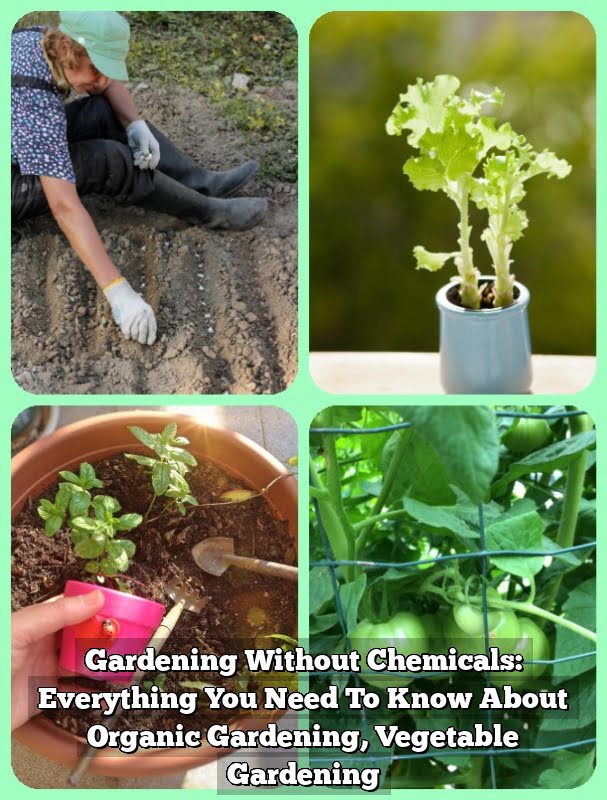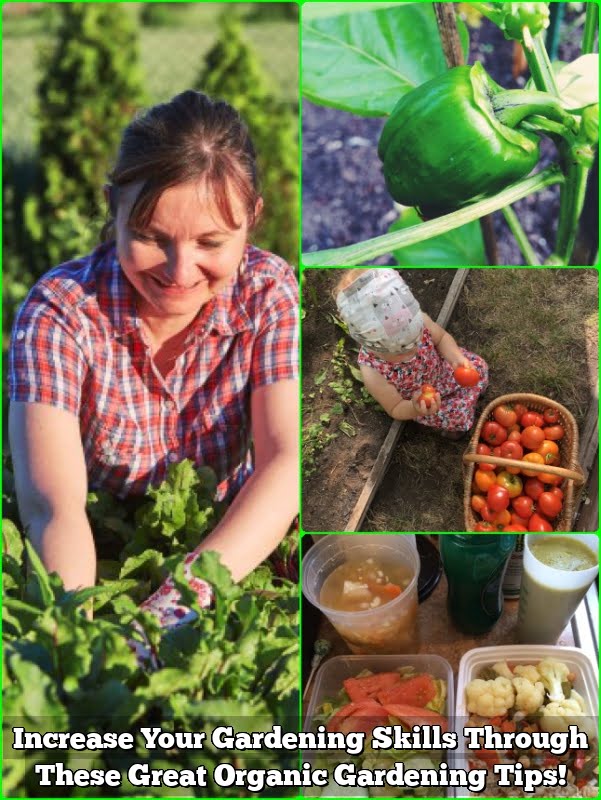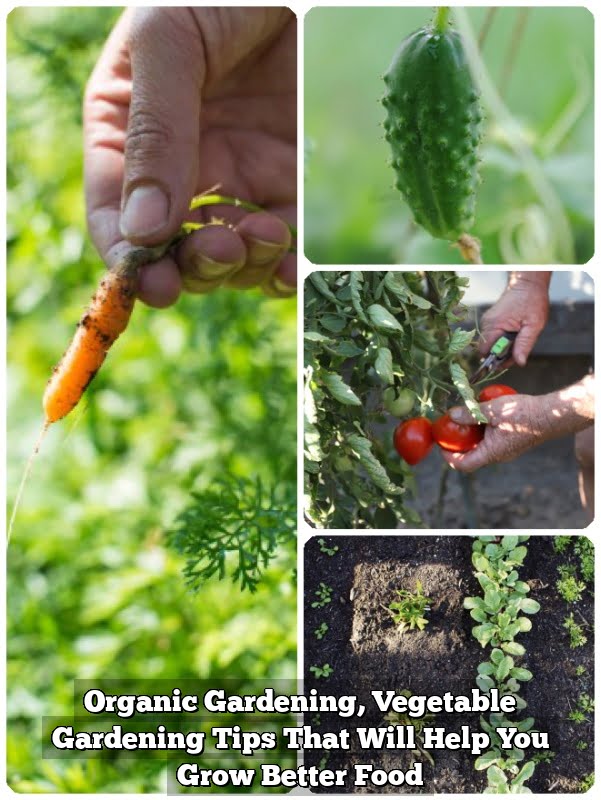Are you looking to enhance the biodiversity in your vegetable garden? Embracing vegetable gardening biodiversity can have a multitude of benefits for both your garden and the environment. From improved soil health to increased pollination and natural pest control, biodiversity plays a crucial role in the success of your vegetable garden. In this article, we will explore the importance of vegetable gardening biodiversity and provide tips for creating a diverse and thriving garden ecosystem.
When it comes to vegetable gardening, biodiversity refers to the variety of plant and animal species within your garden. This diversity not only promotes healthier plants but also creates a more sustainable and resilient garden environment. By incorporating various types of vegetables, flowers, herbs, and beneficial insects, you can create a harmonious ecosystem that supports the overall well-being of your garden.
In the following sections, we will discuss the numerous benefits of biodiversity in vegetable gardening, from promoting soil fertility to preventing pest outbreaks. We will also delve into the process of selecting the right vegetables for a biodiverse garden, maintaining diversity within your garden, companion planting techniques, and the vital role that pollinators and beneficial insects play in supporting biodiversity.
So, let’s dive into the world of vegetable gardening biodiversity and learn how you can create a thriving and diverse ecosystem in your own backyard.
Benefits of Biodiversity in Vegetable Gardening
The benefits of biodiversity in vegetable gardening are numerous and significant. By cultivating a diverse range of plant species, gardeners can promote a healthier and more sustainable ecosystem within their own backyard. One of the key benefits of biodiversity in vegetable gardening is the natural pest control it provides. When a variety of vegetables, herbs, and flowers are grown together, beneficial insects are attracted to the garden, which helps to keep harmful pests in check.
Furthermore, biodiversity in vegetable gardening can improve soil health and fertility. Different plants have varying root structures and nutrient needs, so by growing a diverse range of vegetables, gardeners can prevent nutrient depletion in the soil. This can reduce the need for chemical fertilizers and promote overall soil health.
In addition to these benefits, cultivating a biodiverse vegetable garden also contributes to a more resilient and adaptable ecosystem. With climate change posing new challenges to traditional gardening practices, having a wide array of plant species can help ensure that at least some crops will thrive despite changing conditions. Overall, embracing biodiversity in vegetable gardening not only improves individual harvests but also fosters a more robust and balanced natural environment.
| Benefit | Description |
|---|---|
| Natural Pest Control | Biodiversity attracts beneficial insects that help control harmful pests. |
| Improved Soil Health | Different plants prevent nutrient depletion and reduce the need for chemical fertilizers. |
| Resilient Ecosystem | A diverse range of plant species ensures that some crops will thrive despite changing conditions. |
Choosing the Right Vegetables for Biodiverse Gardening
When it comes to starting a biodiverse vegetable garden, choosing the right vegetables is crucial for success. By selecting a variety of plants that support each other and attract beneficial insects, you can create a thriving ecosystem in your own backyard. Here are some tips for choosing the right vegetables for biodiverse gardening:
- Include a mix of different types of plants such as leafy greens, root vegetables, legumes, and fruiting plants. This diversity will help create a balanced ecosystem and provide different habitats for beneficial insects.
- Choose heirloom and open-pollinated varieties of vegetables over hybrid or genetically modified plants. These traditional varieties often have built-in resistance to pests and diseases, which can help maintain biodiversity in your garden.
- Consider planting native or local vegetable varieties that are well-adapted to your region’s climate and soil conditions. Indigenous plants are more likely to attract local pollinators and wildlife, further enriching the biodiversity of your garden.
Furthermore, incorporating a mix of diverse vegetables in your garden also encourages healthy soil microbiology. Different plant species have different root structures and exudates that support various microorganisms in the soil, contributing to overall soil health.
In addition to supporting biodiversity in your garden, selecting a variety of vegetables can also enhance the visual appeal and culinary diversity of your harvest. By growing an array of colors, textures, and flavors, you can enjoy an abundant and diverse harvest while promoting ecological balance in your vegetable garden.
Tips for Maintaining Biodiversity in Your Vegetable Garden
Maintaining biodiversity in your vegetable garden is essential for creating a healthy and sustainable ecosystem. By incorporating a variety of plant species, you can attract beneficial insects, improve soil health, and reduce the risk of pests and diseases. To maintain biodiversity in your vegetable garden, consider the following tips:
First, practice crop rotation by planting different types of vegetables in different areas each season. This helps prevent the buildup of pests and diseases that may be specific to certain plant families. Additionally, rotating crops can also improve soil fertility by balancing the nutrient requirements of different plants.
Second, use organic gardening methods to maintain biodiversity in your vegetable garden. Avoid using synthetic pesticides and fertilizers, as these can harm beneficial insects and disrupt the natural balance of the ecosystem. Instead, opt for natural pest control methods such as companion planting and attracting beneficial insects like ladybugs and lacewings.
Lastly, embrace heirloom and native plant varieties in your vegetable garden to promote biodiversity. These plants are adapted to local growing conditions and often have better resistance to pests and diseases compared to hybrid varieties. By growing a diverse range of vegetables, you can help support genetic diversity within plant species.
By following these tips for maintaining biodiversity in your vegetable garden, you can create a thriving ecosystem that benefits both your plants and the environment.
| Tips for Maintaining Biodiversity | Vegetable Garden |
|---|---|
| Practice crop rotation | Prevent buildup of pests and diseases |
| Use organic gardening methods | Avoid harming beneficial insects |
| Embrace heirloom and native plant varieties | Promote genetic diversity |
Companion Planting for a Diverse Vegetable Garden
Companion planting is a key strategy for promoting biodiversity in your vegetable garden. By selecting specific plant combinations that benefit each other, you can create a more resilient and diverse ecosystem within your garden. Here are some examples of companion planting combinations that can help promote biodiversity:
- Planting marigolds alongside tomatoes can help repel pests such as nematodes, while also attracting beneficial insects like ladybugs.
- Interplanting aromatic herbs like basil, thyme, and oregano among your vegetable crops can help deter pests and attract pollinators.
- Growing beans or peas alongside corn and squash in the “Three Sisters” tradition not only provides mutual benefits for each plant but also maximizes space and enhances soil fertility.
By leveraging these companion planting techniques, you can create a balanced and diverse vegetable garden that supports the health and productivity of your crops while also attracting a wide range of beneficial insects and pollinators.
In addition to choosing the right companion plants, it’s important to consider the spacing and placement of your vegetables. Some plants may compete for resources or inhibit each other’s growth if planted too closely together, so it’s essential to plan your garden layout with biodiversity in mind. Taking the time to research different companion planting combinations for your specific vegetables can greatly enhance the overall diversity and health of your garden.
Importance of Pollinators and Beneficial Insects in Biodiversity
Pollinators such as bees, butterflies, and other insects play a crucial role in vegetable gardening biodiversity. These tiny creatures are essential for the reproduction of many plants, including vegetables. Their work helps to ensure a healthy and diverse garden ecosystem.
Role of Pollinators
Pollinators are responsible for transferring pollen from one flower to another, which is necessary for the fertilization of the plant. In vegetable gardens, this process is vital for the production of fruits and seeds. Without pollinators, many vegetables would not be able to produce a harvest.
Attracting Beneficial Insects
In addition to pollinators, beneficial insects such as ladybugs, lacewings, and predatory wasps contribute to biodiversity in vegetable gardening by helping to control pests. These insects feed on harmful pests like aphids and caterpillars, reducing the need for chemical pesticides and promoting a more balanced ecosystem in the garden.
Creating Habitat
To encourage a diverse population of pollinators and beneficial insects in your vegetable garden, consider creating habitats that provide food sources and shelter. This can include planting native flowers that attract pollinators, providing water sources like shallow dishes or birdbaths, and leaving some areas of the garden undisturbed to serve as nesting sites for various insects.
By understanding the importance of pollinators and beneficial insects in vegetable gardening biodiversity, gardeners can take steps to support these vital components of a thriving ecosystem.embracing biodiversity in vegetable gardening.
Managing Pests and Diseases in a Biodiverse Vegetable Garden
Integrated Pest Management
One of the key aspects of maintaining biodiversity in a vegetable garden is managing pests and diseases in a way that minimizes harm to beneficial insects and other organisms. Integrated Pest Management (IPM) is an approach that focuses on long-term prevention of pests and diseases through a combination of techniques such as biological control, habitat manipulation, and the use of resistant varieties.
By utilizing IPM strategies, gardeners can effectively manage pests and diseases while promoting overall biodiversity in their vegetable garden.
Companion Planting for Pest Control
Companion planting involves growing different plants together to benefit one another in various ways, including pest control. For example, planting marigolds alongside vegetables can help repel certain pests due to their strong scent. Similarly, planting herbs like basil or dill near tomatoes can attract beneficial insects that prey on tomato hornworms. Incorporating companion planting into your vegetable garden not only enhances biodiversity but also naturally helps manage pests without the need for harmful chemicals.
Natural Predators and Beneficial Insects
Encouraging natural predators and beneficial insects is crucial for managing pests in a biodiverse vegetable garden. Providing habitat for these organisms, such as nesting sites for predatory wasps or butterfly-friendly flowers, can help maintain ecological balance and reduce the need for chemical interventions. Ladybugs, lacewings, and hoverflies are just a few examples of beneficial insects that play a vital role in controlling pest populations while contributing to the overall biodiversity of the garden.
By employing these practices, vegetable gardeners can effectively manage pests and diseases while embracing biodiversity in their gardens. Through mindful pest control methods such as IPM, companion planting, and encouraging beneficial insects, it’s possible to maintain a healthy balance between managing potential threats to crops and preserving a diverse ecosystem within the garden.
Case Studies of Successful Biodiverse Vegetable Gardens
Embracing biodiversity in vegetable gardening has shown to produce successful and thriving gardens. One case study that showcases the benefits of biodiversity in vegetable gardening is the Rodale Institute’s Vegetable Systems Trial. This trial compared a conventional mono-crop vegetable system with an organic, diverse vegetable system.
The results showed that the diverse vegetable system not only had higher yields but also improved soil health and resilience to pests and diseases. This case study highlights the positive impact of embracing biodiversity in vegetable gardening.
Another successful example of a biodiverse vegetable garden is the Jardin Potager du Château de Villandry in France. This stunning ornamental kitchen garden features a wide variety of vegetables, herbs, and flowers arranged in intricate patterns.
The garden not only provides fresh produce for the chateau’s restaurants but also serves as a prime example of how beauty and functionality can coexist in a biodiverse garden. Visitors to the garden can witness firsthand the abundance and vitality that comes from embracing diversity in vegetable gardening.
The Chelsea Physic Garden in London also serves as a remarkable case study for successful biodiverse vegetable gardening. The historic garden showcases an array of medicinal plants, vegetables, and fruit trees that have been cultivated together for centuries.
The deliberate interplanting of diverse species not only creates an aesthetically pleasing garden but also promotes natural pest control and healthy soil. These case studies demonstrate that by incorporating a wide range of plant species, it is possible to create abundant and resilient vegetable gardens while promoting environmental sustainability and supporting local ecosystems.
Conclusion
In conclusion, embracing biodiversity in vegetable gardening is not only beneficial for the environment but also for the overall health and productivity of your garden. By incorporating a wide variety of vegetables, implementing companion planting, and attracting pollinators and beneficial insects, you can create a thriving ecosystem that supports the growth of your plants.
Not only does this promote a more resilient and sustainable garden, but it also contributes to the conservation of plant species and the preservation of natural habitats.
Furthermore, maintaining biodiversity in your vegetable garden can help in reducing the risk of crop failure due to pests or diseases. The presence of diverse plant species can confuse and deter pests, as well as provide a natural balance that suppresses outbreaks of specific diseases. This approach minimizes the need for harmful pesticides and promotes a more holistic method of pest management.
Looking at successful case studies of biodiverse vegetable gardens, we see how these principles are put into practice with impressive results. From increased yields to improved soil fertility, these gardens serve as living examples of how biodiversity can transform a regular vegetable garden into a thriving ecosystem. Therefore, it’s clear that embracing biodiversity in vegetable gardening is not just an option but a necessity for sustainable and productive gardening practices.
Frequently Asked Questions
How Does Gardening Help Biodiversity?
Gardening helps biodiversity by providing a habitat for a variety of plants, insects, birds, and other animals. By growing a diverse range of plants, gardeners can attract different species and support local ecosystems.
Is Vegetable Gardening Good for the Environment?
Vegetable gardening is good for the environment because it encourages the use of organic practices and reduces the need for harmful pesticides and fertilizers. It also promotes sustainability by growing food locally, which reduces the carbon footprint associated with transporting produce long distances.
Is a Vegetable Garden an Ecosystem?
Yes, a vegetable garden can be considered an ecosystem. It consists of various elements such as plants, insects, soil microorganisms, and small animals that interact with each other in a complex web of relationships. When managed sustainably, a vegetable garden can support a healthy ecosystem that benefits both people and wildlife.

If you’re looking to get into vegetable gardening, or are just looking for some tips on how to make your current garden better, then you’ve come to the right place! My name is Ethel and I have been gardening for years. In this blog, I’m going to share with you some of my best tips on how to create a successful vegetable garden.





